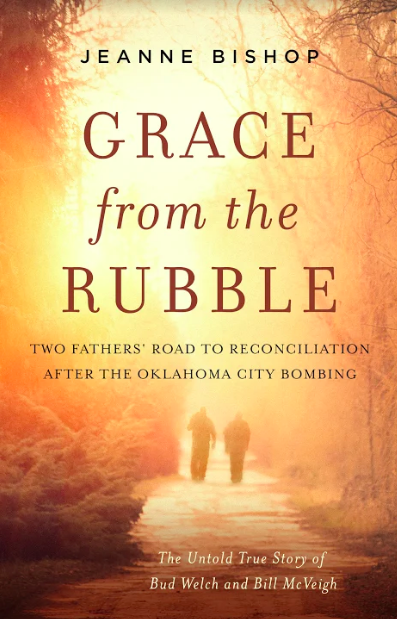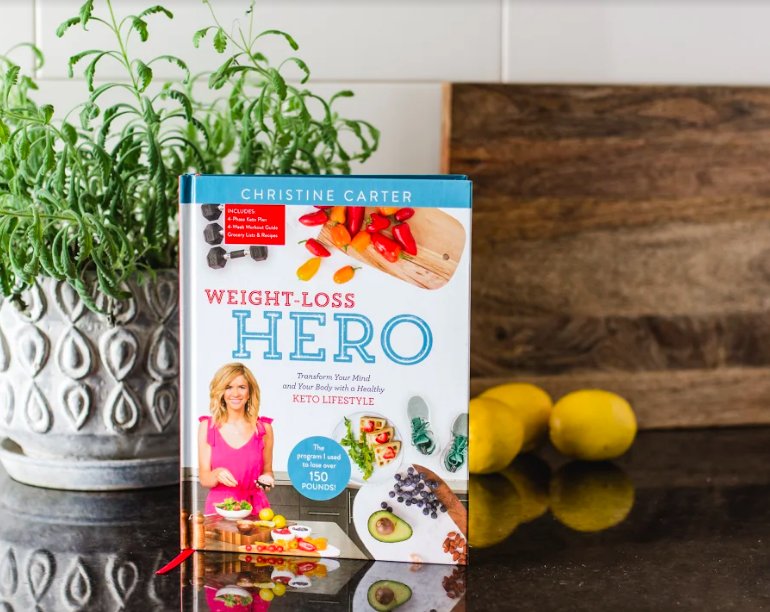Tested by Hardship, Trusting in Jesus: Bud Welch, Jeanne Bishop, and Christine Carter
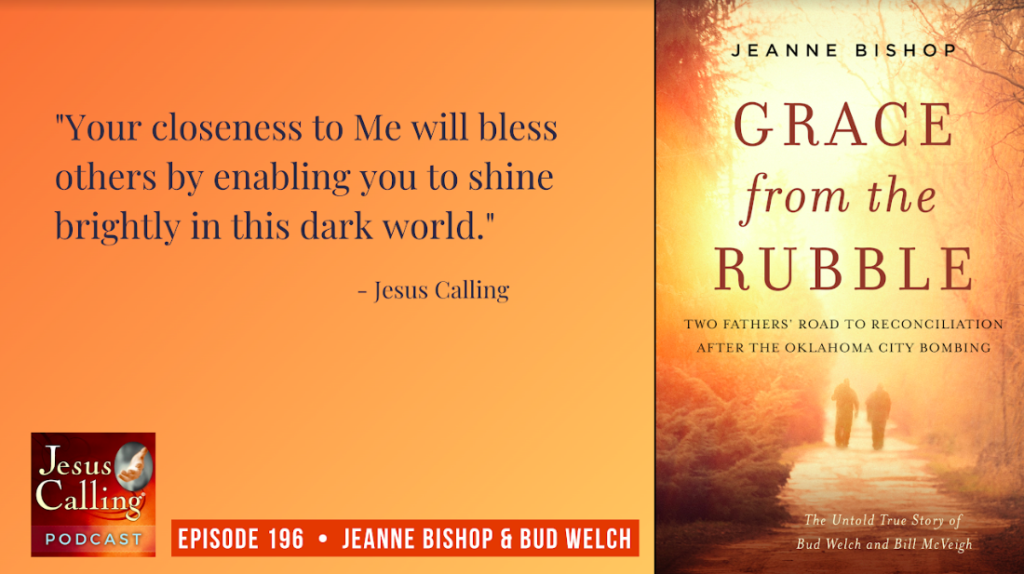
Jeanne: Jesus Calling, September 5th.
I am your best Friend, as well as your King. Walk hand in hand with Me through your life. Together we will face whatever each day brings: pleasures, hardships, adventures, disappointments, Nothing is wasted when it is shared with Me. I can bring beauty out of the ashes of lost dreams. I can glean Joy out of sorrow, Peace out of adversity. Only a Friend who is also the King of kings could accomplish this divine alchemy. There is no other like Me.
Tested by Hardship, Trusting in Jesus: Bud Welch, Jeanne Bishop, and Christine Carter – Episode #196
Narrator: Welcome to the Jesus Calling Podcast. Today we talk with guests who have gone through seemingly impossible circumstances that could have derailed their lives, but instead motivated them to use their experiences to help and inspire others: Bud Welch, Jeanne Bishop and Christine Carter.
First up, April 19, 2020, marked the 25th anniversary of the Oklahoma City Bombing, the single-most deadly act of domestic terrorism committed on American soil to date. Bud Welch’s daughter Julie was among the 168 people killed in the bombing that day. As Bud plunged into grief over the loss of his only daughter, he emerged resolute to forgive the man who had orchestrated the attack and vowed to tell his parents that he didn’t blame them for the loss of his daughter. Bud got the chance to meet Bill McVeigh three years after the bombing and shared the moving story of that encounter when he would speak in various places around the country. Jeanne Bishop, a colleague of Bud’s, also lost a family member to violence. And when she heard Bud’s touching story of forgiveness, she knew she had to write about it so the world could learn that if this man could forgive, surely we all can.
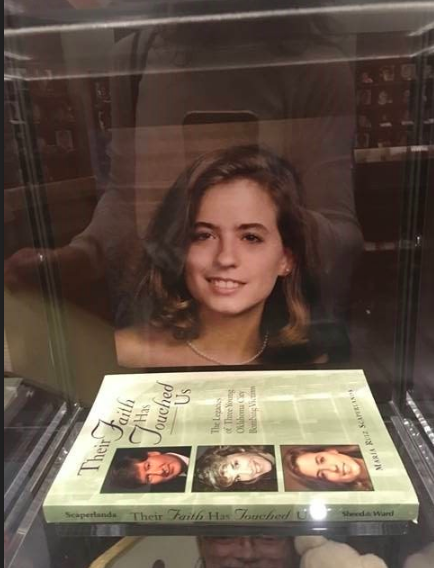
Bud: My name is Bud Welch. I grew up on a dairy farm in central Oklahoma, and I attended Catholic elementary school, Catholic high school in Shawnee, Oklahoma. I spent almost forty years in the service station business.
April 19th, 1995, my life was changed completely. My only daughter, Julie Marie, was killed in the Oklahoma City Bombing. I spent a year abusing alcohol, self-medicating, and I learned that wasn’t working. It was only making matters worse.
Shared Loss Brings Common Ground
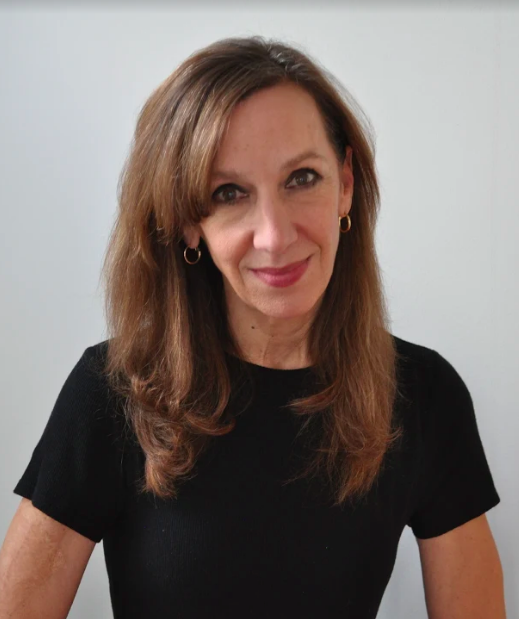
Jeanne: My name is Jeanne Bishop, and I grew up in Oklahoma City. I am a friend of Bud Welch’s, and I met him through a tragedy that both of us suffered. He lost his twenty-three-year-old daughter in the Oklahoma City Bombing, and I lost my twenty-five-year-old sister, Nancy, to a murder.
My sister Nancy was killed in April 1990, and five years later to the month, Bud’s daughter Julie was killed. I met him a couple of years later when we were both speaking. We did a death penalty speaking tour in Japan. And that’s when I really got to spend a lot of time with Bud and got to hear him tell this story a lot.
What I love about Bud is that he starts out by just telling us who Julie was, this beautiful young woman who had a gift for languages. She was fluent in five languages. She graduated from Marquette University, and she worked as an interpreter in the Social Security Administration on the first floor of the Murrah Building.
On the morning of the bombing, she was in this supply closet with three of her coworkers, cleaning up and throwing out outdated forms. She got called to the front of the office to help a man who only spoke Spanish, and she was there to help translate for him. And that’s when the bomb went off.
All three of her coworkers in the back survived the blast. They were rescued forty-five minutes later.
Bud: I heard the bombing initially when it happened, and it vibrated our house. We’re about eight miles to the northwest of downtown Oklahoma City.
Ten minutes after that, my younger brother was driving around the city on a freeway, and he could see a large plume of smoke coming from downtown. And he called me on the phone. He wanted to let the television on, but I didn’t. He said, “Turn it on. Something has happened downtown.”
Five minutes after I turned the TV on, the helicopter was approaching downtown, one of the news stations, and they focused on the Murrah Building. And I could see that the whole front of the building was completely gone. It turned out that the bomb went off only about seventy-five feet from the Social Security waiting room, which Julie had gone to at that moment. And Julie, her client, and a friend—all three of their bodies were found on Saturday. The bombing was Wednesday morning.
And there’s a lot of it, to be honest with you, that happened immediately after that I have apparently blanked out.
Two Fathers, Two Different Losses
Bud: When I met Bill, it was almost three and a half years after the bombing. Seeing him on television two or three weeks after the bombing, his eyes were filled with grief. And when I saw him on television, I was witnessing the way I felt, and I somehow connected with him. I knew that someday I wanted to go tell that man that I truly cared about how he felt, and I did not blame him or his family members for what had happened.
And I had a chance to do that on September 5th, 1998. When I met with Bill and his youngest daughter, Jennifer, we spent about two hours in their kitchen talking, just kind of getting to know one another. The first half-hour I was there, Bill and I spent in his garden. He has a very large garden every summer, half an acre. And we just got to kicking dirt clods around, learning a little bit about one another. I learned he was the fifth-generation of McVeighs, Western New York, Irish Catholic, and I’m the second generation of Welches, Central Oklahoma, Irish Catholic, so we had something in common there.
Meeting that day, it was just heart wrenching for me and for them. I remember there was an eight-by-ten photo, a picture, hanging on the wall of Tim. It was kind of back behind my right shoulder. And once I noticed it, I kept glancing at that picture on the wall. And after a while, I started really feeling self-conscious, because I knew every time I had looked, they had, of course, seen me. It was Jennifer and Bill sitting with me at the kitchen table. And finally, I caught myself looking again, and I just said, “God, what a good-looking kid.”
And I looked across the table to Jennifer, and she dropped her eyes to the table, didn’t say a word. And Bill did the same thing.
What I learned that day about Bill McVeigh was that he and I had the exact same thing in common: we had both buried our children. Me traveling all over the world, speaking against the death penalty, every time I spoke I told the story of Julie. I wanted to place a face on her so people would get to know her. The thing I recognized that morning in Buffalo, New York, was Bill has no way of going out and telling a story about Tim. He can’t do that as I can, but yet he’s suffering from the same thing.
“What I learned that day about Bill McVeigh was that he and I had the exact same thing in common: we had both buried our children.” – Bud Welch
Grief Turns to Compassion
Jeanne: Well, for years, I wanted nothing to do with the young man who murdered my sister and her husband. Once I finally did forgive him and reach out to him, I wrote about it in a book, Change of Heart, and I got such a reaction to it. What I saw was there’s such a hunger out there for these stories of people who found a way to get out from under that burden of hate and bitterness, and find this freedom and the grace and mercy and compassion.
“There’s such a hunger out there for these stories of people who found a way to get out from under that burden of hate and bitterness, and find this freedom and the grace and mercy and compassion.” – Jeanne Bishop
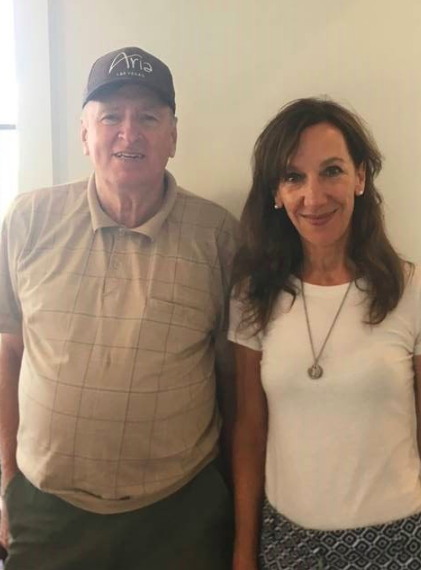
The best story that I knew is the one I’d heard Bud Welch tell in Mongolia, in Japan, all over the world about Julie and about his extraordinary friendship with Bill McVeigh, who Bud describes as a bigger victim of the Oklahoma City bombing than Bud himself. He considers Bill a bigger victim because of exactly what he said, that this is a father whose son is still the worst domestic mass murderer in the history of this country. And he can’t speak about him other than to say if people ask that Tim McVeigh is his son and he loves him and will always love him and pray for him.
And so I knew I wanted to write about this story. This April 19th in the year 2020 will be the 25th anniversary of the Oklahoma City bombing. And I didn’t want us just to talk about Tim McVeigh and rehash all the evil reasons he did what he did. I wanted to uplift these two men, these extraordinary men, these two fathers who should have been enemies and instead became these unexpected friends precisely because they were willing to see in one another that they had this common ground, not only being Irish Catholic and growing up on farms, each with three children born in the same year—these men just both turned eighty this year—but the common ground of fathers who always will have unconditional love for their children.
“I wanted to uplift these two men, these extraordinary men, these two fathers who should have been enemies and instead became these unexpected friends precisely because they were willing to see in one another that they had this common ground.” – Jeanne Bishop
Bud: You know, when your parents die, you go to the hilltop, and you bury them. When your children die, you bury them in your heart. It’s forever. It never goes away.
“When your parents die, you go to the hilltop, and you bury them. When your children die, you bury them in your heart. It’s forever. It never goes away.” – Bud Welch
Redemption Born of Tragedy
Jeanne: One of the details I loved when I was interviewing Bud was pointing out that when [Julie] went off to college, he called her every single day, even if just for thirty seconds, to check in on her. The other thing he told me about Julie that I loved is that she was a deeply faithful Christian for such a young woman. She was a daily communicant at her Catholic Church, meaning she was going to mass every single day of her life those last two years. Julie had just come from her Catholic church that morning, right before she died. She had been at the seven o’clock mass at St. Charles Borromeo Church in Oklahoma City that morning and had just left there in time to get to work by eight. And then, of course, the bomb went off at 9:02 AM. That was how she spent the last morning of her life.
Bud: The priest that gave Julie communion that morning, I met him about a year later. And he told me that he remembered her being in mass, and remembered that she felt completely at peace with herself. When she received communion that morning, he said, “I remembered her very well.” I’ve had comfort about that every time I think about it.
Jeanne: The idea of grace coming from the rubble—or literally the destruction of the Oklahoma City bombing, piles of concrete and twisted steel and broken glass that killed Bud’s only daughter, his youngest child—out of that there gets to be this man, Bud Welch, that reaches out to the father of her murderer and says, “Let’s make peace. Let’s sit down together. I need to tell you that I don’t hate you. I don’t hate your family. I don’t blame you. Be my friend.” To have that redemption come from such tragedy is just a way of doing what God calls us all to do, which is to forgive others as we’ve been forgiven. So I think they are a living example of the forgiving and gracious love of God.
“To have that redemption come from such tragedy is just a way of doing what God calls us all to do, which is to forgive others as we’ve been forgiven.” – Jeanne Bishop
Narrator: Jeanne’s book, Grace From the Rubble, commemorates the 25th anniversary of the Oklahoma City Bombing and the remarkable friendship of Bud Welch and Bill McVeigh. It is now available wherever books are sold.
Stay with us for our next guest, Christine Carter, after this brief message from Jesus Calling.
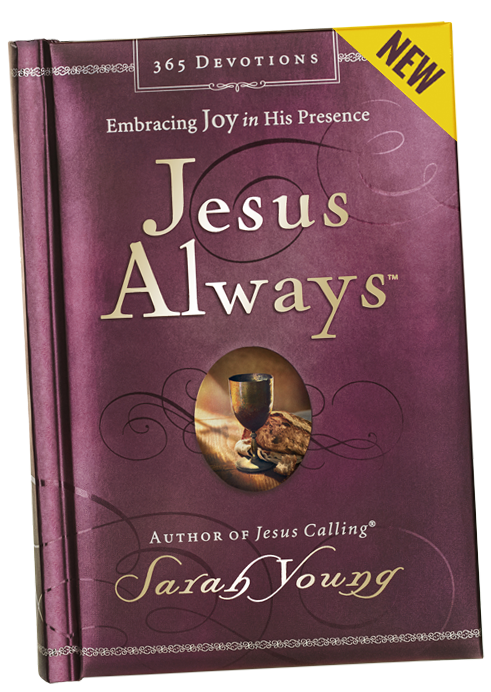
When joy feels out of reach, Jesus Always, the first full 365-day devotional to follow Jesus Calling from Sarah Young, shares joy-filled reminders from God’s Word and connects you with Jesus – the One who is always with you. The long time Jesus Calling readers will love being able to have a whole new year of devotions based on themes of Joy. Find the Promise of Joy in Scripture and in Jesus Always. Available at JesusCalling.com/books and at your favorite booksellers.
Narrator: Christine Carter’s struggle with weight began in early adulthood and became an all-consuming part of her life. Through all the efforts to lose weight (even resorting to surgery), the weight would always return and Christine would feel shame and despair. It wasn’t until she changed the way she thought about weight, and what her real worth was based upon that she was finally able to shed more than 150 pounds. She now coaches others on how to get healthier and brought this philosophy to her program: weight loss doesn’t begin with a new diet or exercise plan—it begins in the mind, which she details in her new book Weight-Loss Hero: Transform Your Mind and Your Body with a Healthy Keto Lifestyle.
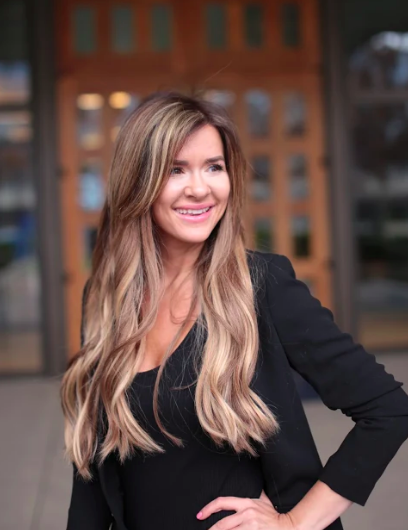
Christine: My name is Christine Carter, and I am the founder of Weight Loss Hero. Several years ago, I tipped the scales at just under three hundred pounds. I felt like I was stuck. I felt like I was on a roller coaster. I tried every diet, and I couldn’t stick to anything. I would try something, I would fail, and then I would gain even more weight. And I just felt like I was in this vicious cycle that I couldn’t get out of.
Growing up, I was not overweight. I was actually very thin my entire life until I was an adult. I will tell you when I was a little girl, my biggest dream is I felt like I would be on stage. I thought I would be a Christian artist. There was an artist named Point of Grace, and they were just my absolute favorite. I wanted to be them when I was growing up.
For me, I fell away from the church somewhere in my teenage years, and you know, I absolutely still believed in God. I still believed in Jesus. But as you fall away, it’s kind of like when you’re looking at the sky and you’re in the city, you know, the stars are still there, but you just can’t see them as well, because of all of the light, the ambient light. I kind of felt that way. I didn’t feel God anymore. I didn’t. And I felt like I was too far gone. I think a lot of people feel that way. And I went from a life where I was very, very ingrained in church growing up, and then I started buying some of the things that the world was telling me. And so as that happened, that’s when my first weight gain started to come on.
The Catalysts to Change
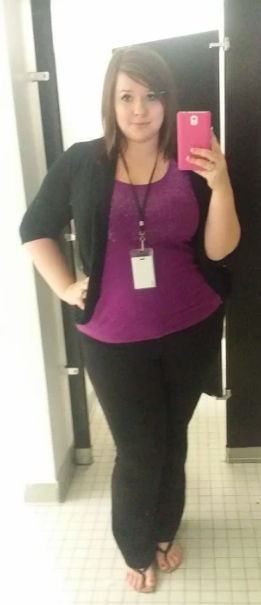
When I was at my heaviest weight, my family was having their annual family reunion. And for me, when I was overweight, I carried a lot of shame personally. I know we shouldn’t, but I did. And regardless of what anybody thinks about that, that was my reality. I didn’t feel good in my skin. I didn’t feel good at all.
My dad invited me to our annual family reunion, and I did not want to go at all. But this was going to be like the last reunion where all the family would be, all my aunts and uncles. And he’s just like, “It would mean so much for me, for you to come.” And so I remember getting dressed that day, and just really being like, Okay, how am I going to minimize the situation as much as possible? Wear neutrals, really try to not stand out.
I found an outfit that I felt moderately comfortable in, and I went to the family reunion. And I will never forget this. I was looking across the room, and my favorite uncle Bruce—sorry to all my other uncles, everybody knows he’s the favorite—was across the room. And he kind of looked my way and started walking towards me, and I’m assuming he’s coming to talk to me. So we’re walking towards each other, and as I’m going to [speak], “Hey,” he looks at me dead in my eyes and just keeps walking. I mean, he connected, and he kept walking.
So I went back and I said, “Bruce.”
And he looked at me, he goes, “Hi, can I help you?”
I said, “It’s me, Christine.”
And the look on his face was like, “Oh . . .”
He had no idea who I was. And I knew it’s not because he forgot what I looked like. It’s because I had become unrecognizable.
When I left, I remember thinking to myself, I don’t know how I’m gonna do it, and I don’t know what I’m going to do, but I will never, ever feel this way again. And that was really the beginning of not figuring out how to do it. Right? That was the beginning, saying, No matter what, I’m not going to give up this time.
Doing the Hard Work and the Heart Work
Along my journey, I lost over 150 pounds. And honestly, I thought that losing weight was going to fix my problems. Right? I thought I had a weight problem, and I didn’t know the weight I was carrying was a symptom of what was lurking beneath the surface. I looked in the mirror and I didn’t like what I saw. And one of the things that became really important to me at that part of my life is I wanted success, the world’s version of success. I wanted to live in a high rise. I wanted a nice car. I wanted to make a lot of money in corporate America. That was what fueled me.
“I thought I had a weight problem, and I didn’t know the weight I was carrying was a symptom of what was lurking beneath the surface.” – Christine Carter
So I did everything I set out to do. I was in my high rise, and I remember just crying my eyes out because I still felt so empty. I had lost all the weight, I looked the way I wanted to look. I had everything that I wanted to have, every material possession I could possibly have, and I still felt so empty on the inside.
I feel like—hindsight being 20/20—God was planting so many seeds in my life.
What I have found since then is that most of us who have gained a considerable amount of weight usually have something that we’re fighting here [in our hearts]. And that’s kind of our go-to. I know for me it was. Through my journey, I had weight loss surgery, and I started losing a little bit of weight, and that very quickly stalled, and then the scales started going back up. And I realized that I was really going to have to not only work on my habits, work on how I eat, work on how I move my body—even though I didn’t want to at the time—but I also knew that I had a lot of heart work to do. I had to do the hard work, and I had to do the heart work.
So once I finally realized that I needed to work on me, and not just work on my body, but work on both the inside and the outside, first I found a diet that worked for me. That was really important. I found a diet that could work for me, whether I want to eat out, whether I want to eat at home, or I’m traveling, whatever. We all have busy lives, and I think that that’s key.
I found a workout strategy that also works. I don’t want to live in the gym. I’m not ever gonna be a gym rat. I want to be able to get in and get out.
And then last, I found different strategies, be it mentors in my life, the books I’ve read, strategies that I’ve tried that have worked for me and are proven strategies to really help reshape how I think about the habits and the disciplines that were running my life. We are all ultimately run by our habits and our disciplines, and we know that. And I think when we take some of these strategies and apply them the right way to weight loss, then we can see that lasting effect.
Calling Others to Help on the Health Journey
So throughout the years, I, of course, wanted to help everyone that I could. I think that if you’ve ever overcome something in your life, I feel that part of what God calls us to do is to help someone else, even if it’s just one person, help somebody else do the same. Especially when we’re all struggling with so many of the same issues.
“I think that if you’ve ever overcome something in your life, I feel that part of what God calls us to do is to help someone else, even if it’s just one person, help somebody else do the same.” – Christine Carter
I had women who were reaching out over and over and over saying, “Can you help me? Can you work with me? Can you coach me?” And I just got to this place that I’m like, I know how to do this. And I feel like I know how to help people.
And really, it was more of God’s calling on my life. When God finally called me to this, I decided, You know what? I am going to leave corporate America. I’m going to leave the dreams behind that I thought I wanted, and I’m going to push forward and I’m going to start working with women and really trying to help as many people as I possibly can.

Fast forward, I started sharing my journey as I was losing weight. I would post pictures of what I was eating or a new pair of shoes or what kind of workouts I was doing. And I slowly but surely started having people take interest in knowing a little bit more. And my passion really led me to want to become a fitness coach myself.
I’ve now had my actual coaching company for about three years now, and I have been able to work with thousands of women from around the world, over 100 countries. I’ve been able to work with women and kind of show them what I did—not that my way’s perfect—but show them what I did and try to help them not only with the diet and exercise portion, but also really working on that mindset piece.
So when we’re looking at mindset, people are like, “Well, what exactly does mindset mean? How are you going to change my mindset?” I think so many of us look at healthy eating and a healthy lifestyle like being in a prison almost. That’s how it feels to us, because for so long, food is kind of like the thing that we go to think about. It makes sense. Birthday parties, we’re eating. Graduations, we’re eating. Everything we do, we’re eating. And what winds up happening is when we become overweight, and we really need to change some of those habits, we can start to feel trapped. And I think a lot of our habits that we have and a lot of our mindsets are really what’s holding us hostage. Sure, we can follow a diet or workout plan for two or three weeks, but it’s only a matter of time before we fall off and then we feel more frustrated than ever.
“I think a lot of our habits that we have and a lot of our mindsets are really what’s holding us hostage.” – Christine Carter
So when we change how we think about this process, when we change how we look at failures or setbacks and we change our strategy, then we can always just come back and get right back on track, not have to have that shame, not have to have that guilt, and step back on our path towards becoming healthier and healthier.
Learning to Love Yourself the Way God Loves You
There is a huge difference between self-love and the love of self that we can sometimes call selfish.
In Matthew 22, God calls us to do two things. He calls us to love the Lord your God with all your heart, your mind, and your soul. And He calls us to love your neighbor as yourself. But here’s the thing, this is where I think we get messed up. For most of us, if we actually talked to our neighbor the way that we talk to ourselves, if we treated our neighbor the way that we treat ourselves, if we shamed our neighbor the way that we shamed ourselves, our neighbor would move. They would not want to be here.
And that piece of that verse, I think, is so often missed because we are God’s creation. He loves us. Why should we not love us? A lot of that is where it begins, we give so much love, and we pour so much love out into every other person and every other thing in our lives. But we put ourselves last—and certainly there’s something to be said about having a servant’s heart—but you can never pour from an empty cup. When you drain yourself and you become emptier and emptier and emptier, it becomes so difficult to really be there for the people in your lives.
“We put ourselves last—and certainly there’s something to be said about having a servant’s heart—but you can never pour from an empty cup.” – Christine Carter
So when I say, “Self-loving you” on this journey, it’s truly saying, “Hey, I’m going to appreciate this body that God gave me. Yeah. Maybe it’s got some marks and scars and whatever. But I’m going to love myself for who I am. I’m going to love myself even though I’m flawed.”
I am going to read from Jesus Calling on March 16th. It says:
It is good that you recognize your weakness. That keeps you looking to me, your Strength. Abundant life is not necessarily health and wealth; it is living in continual dependence on Me. Instead of trying to fit this day into a preconceived mold, relax and be on the lookout for what I am doing. This mind-set will free you to enjoy Me and to find what I have planned for you to do. This is far better than trying to make things go according to your own plan. Don’t take yourself so seriously. Lighten up and laugh with Me. You have Me on your side, so what are you worried about? I can equip you to do absolutely anything, as long as it is My will.
We all have a purpose. Whether you’re a fitness influencer, or whether you’re a mom, we all have a purpose in our lives. And part of that, in my opinion, is for us to take care of ourselves and lead by that example. It doesn’t mean you have to be perfect, but leading by that example is going to help those around you.
You see something different in you when you’re taking care of yourself. So I always talk about the idea of choosing what you want more, or what you want most, rather than what you want at the moment. I think so often whether it’s eating something unhealthy or just anything that this world has to offer, it’s easy to fall into that temptation of picking the things that satisfy at the moment. But those things rarely satisfy for a lifetime. I’ve learned to put my eyes on Christ, put my eyes on God, to say, “What does He want for me?” And that just personally helps me make those choices.
“It’s easy to fall into that temptation of picking the things that satisfy in the moment. But those things rarely satisfy for a lifetime. I’ve learned to put my eyes on Christ, put my eyes on God, to say, ‘What does He want for me?’” – Christine Carter
Narrator: You can find Christine’s book, Weight-Loss Hero, wherever books are sold.
If you like hearing stories about overcoming great obstacles through the power of faith, check out our podcast episode featuring Christian comedian Chonda Pierce.
Narrator: Next time on the Jesus Calling Podcast, we visit with Angela Braniff, founder of the popular YouTube channel This Gathered Nest. She is an adoption advocate, homeschool mom, and content creator, and writer of the new book Love Without Borders. Angela shares how she derived her worth from pleasing others, and how God moved her to a new place of acting boldly, in spite of what others might say or do.
Angela Braniff: I just thought that if I did all the right things, then my life would turn out how everyone told me, and it would be happy and fulfilled and everything would be great. And really, this book is my journey of how God kind of shattered all of that for me, and said, “That’s not what I had for you. I have something very different for you.”
Narrator: Do you love hearing these stories of faith weekly from people like you whose lives have been changed by a closer walk with God? Then be sure to subscribe to the Jesus Calling: Stories of Faith Podcast on Apple Podcasts, Stitcher, or wherever you listen to your podcasts. If you like what you’re hearing, leave us a review so that we can reach others with these inspirational stories. And, you can also see these interviews on video as part of our original web series with a new interview premiering every other Sunday on Facebook Live. Find previously broadcasted interviews on our Youtube channel, on IGTV, or on jesuscalling.com/media/video.
